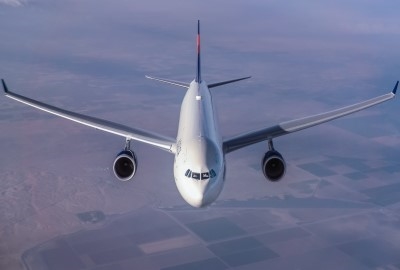The better route to climate-friendly flying
What are airlines doing to decarbonize aviation? In an analysis, VOX is reporting on the shift that the world’s major airlines have made since their focus moved from carbon offsets to other ways to achieve net-zero greenhouse gas emissions by 2050.
According to the analysis by VOX, many major airlines have committed to decarbonize aviation by 2050. To reach these ambitious targets, they're adopting a range of strategies, including upgrading to more fuel-efficient aircraft, electrifying ground vehicles, optimizing operational efficiency, and experimenting with alternative aircraft designs, such as battery- and hydrogen-powered planes. In the past, VOX reminds its readers, some airlines relied on carbon offsets to mitigate emissions, but this approach faced criticism for lacking effectiveness and transparency. Several airlines have abandoned carbon offsets.

Central strategy: SAF
The shift towards sustainable aviation fuel (SAF) is now a central strategy for achieving decarbonization goals, the VOX report concludes. SAF is produced from sources like crop waste, with minimal carbon emissions. While SAF holds promise for reducing emissions, its high cost is a significant challenge, as fuel already represents a substantial portion of airlines' expenses.
The transition to SAF requires substantial investment, with estimates suggesting a need for $175 billion annually until 2050. The growing demand for flights, coupled with impending emissions regulations, makes aviation a complex climate issue.
Alternative propulsion technologies
VOX points out that airlines are also exploring alternative propulsion technologies, investing in carbon capture, and looking for innovative solutions to balance their emissions. Government incentives, like the Inflation Reduction Act in the U.S. and EU mandates in Europe, are also crucial for boosting SAF adoption.
The aviation industry faces cloudy skies on its path to sustainability, VOX concludes, with challenges including turbulent business climates, the need for major oil companies to commit to SAF, and the growing influence of eco-conscious passengers. Ultimately, the success of sustainable aviation depends on the collective efforts of airlines, manufacturers, investors, regulators, and travelers.


